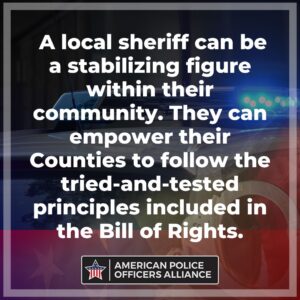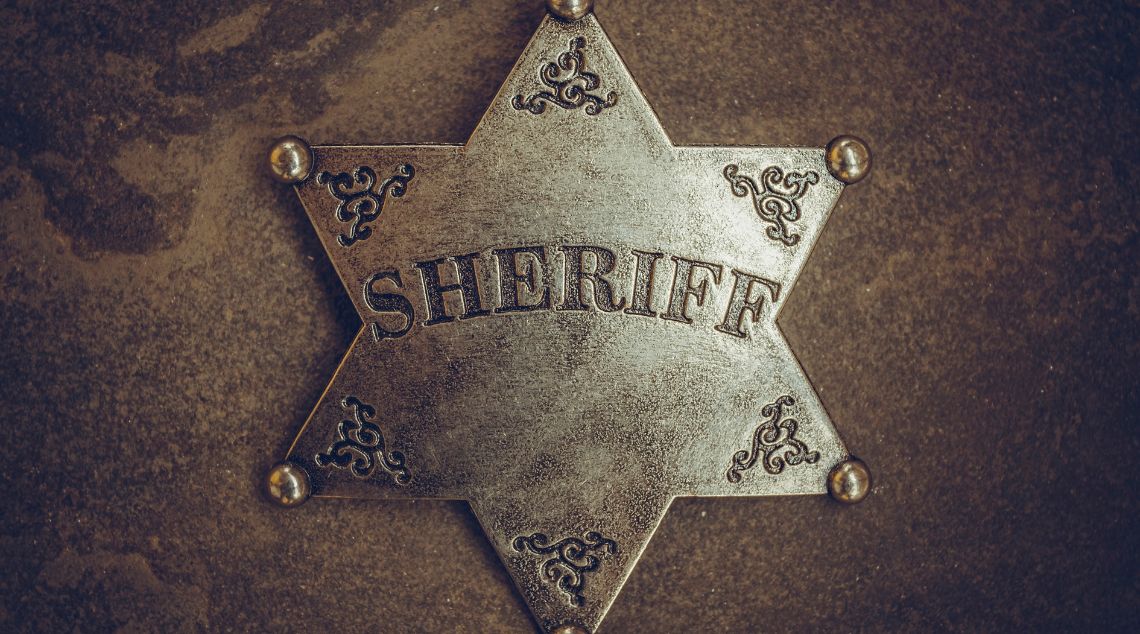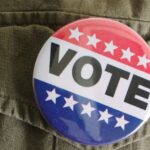Generally, the public thinks of Sheriffs as the embodiment of Law Enforcement in their area. However, for the Constitutional Sheriffs and Peace Officers Association (CSPOA), this position comes with the responsibility of enforcing laws and standing against laws they feel are unconstitutional.
CSPOA dates back to 2011, but over the past couple of years, it has quickly gained momentum across the country. As a growing political force, let’s examine what they will do with their newfound influence.
What is the Constitutional Sheriffs and Peace Officers Association (CSPOA)?
Constitutional Sheriffs and Police Officers Association was founded in 2011 by Richard Mack, known as Sheriff Mack, a former sheriff from Arizona who retired in 1996. Among his credentials, Mack is a graduate of the FBI National Academy, and he has worked as an undercover narcotics officer, DARE instructor, and even as a youth officer.
According to Mack, the Constitution places Sheriffs as the highest law enforcement authority within their jurisdiction. They may not be able to draft new laws, but it is their duty to not enforce a law they deem unjust or unconstitutional. Likewise, within their jurisdiction, they are also above the will of Federal or State agencies.
Although the organization does not publicize its membership records, CSPOA reportedly has over 3,000 due-paying members spread over a dozen states. Out of them, approximately 300 are Sheriffs.
CSPOA’s position has ruffled some feathers among mainstream Constitutional lawyers. And yet, Mack and many of CSPOA’s “Constitutional Sheriffs” continue their mission. So far, they have tackled many hot-button issues, such as gun control, COVID-19 restrictions, and even immigration enforcement.

Should Sheriffs Challenge Federal Law In the First Place?
The U.S. Constitution never mentions the position of sheriff, which immediately muddles a straightforward interpretation of a sheriff’s Constitutional role. In addition, the role of interpreting laws is generally left to judges and State attorneys.
On the other hand, the Constitution is also the nation’s foundational document, so the ideals it represents deserve special protection. While the Founding Fathers may not have predicted the ongoing attacks these ideals suffer, they would have likely upheld any attempt at their defense.
The national landscape is too divided for these issues to be resolved quickly. But in the smaller towns away from the capital, citizens can still continue enjoying the same rights and liberties they always have – at least, until any potentially unconstitutional law is ruled as valid by the highest courts.
In this sense, a local sheriff can be a stabilizing figure within each community. Rather than leaving everything drift according to the latest trend, they can empower their county to follow the tried-and-tested principles included in the Bill of Rights.
What Has the CSPOA Done So Far?
So far, CSPOA’s activities have been geared towards education. The organization hosts and organizes seminars, conferences, and courses nationwide, disseminating the ideals behind their “Constitutional Curriculum.”
These courses have been offered in 13 states. In six of these, local authorities gave them full accreditation and counted towards “Continuing Education” credits for local officers.
Perhaps more importantly, what do CSPOA “alumni” do with the knowledge they impart? In two Nevada Counties, the sheriffs in charge became “official CSPOA Constitutional counties,” and both their Sheriffs and the local regulations have stood up against laws that treaded too closely to Second Amendment rights. It is difficult to predict the full impact of CSPOA, but any group that takes such a bold stance is worth supporting. In many smaller towns, Sheriffs get to appoint jailers, service the local court, and distribute security resources within their counties. Their sway can drastically affect thousands of lives – and CSPOA can help ensure this power will be used for good.
Image Source: Canva









